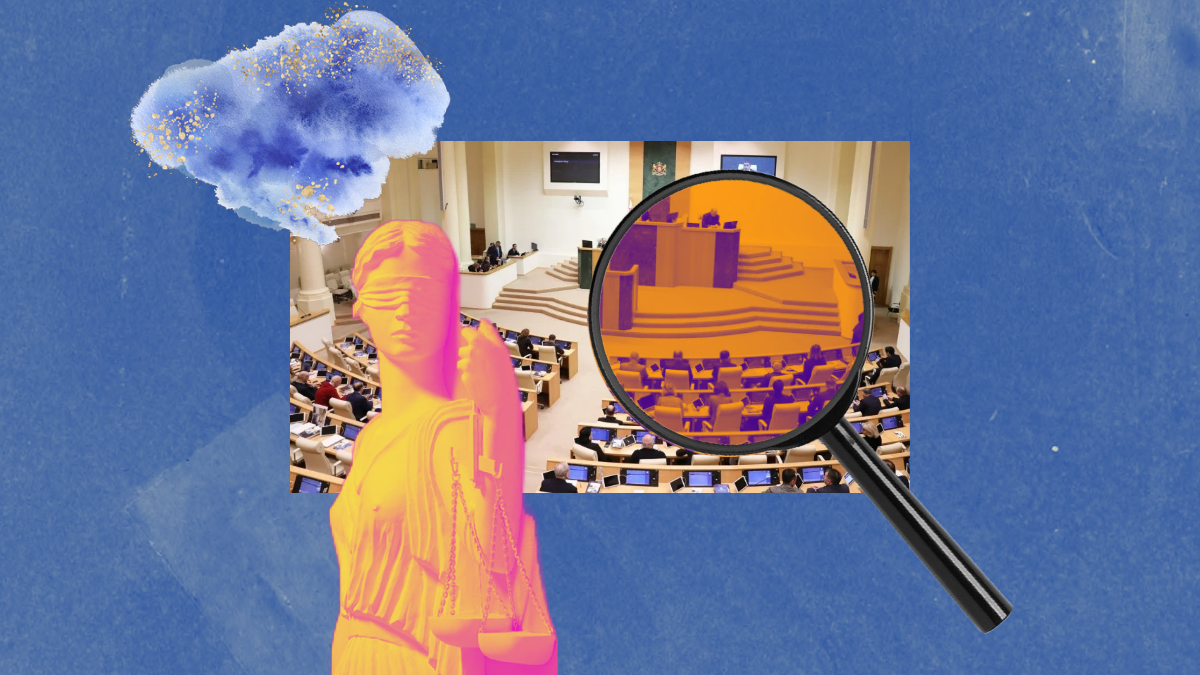Explainer | Why is it Important to Create a Temporary Investigative Commission?
Fifty opposition MPs tried but failed to establish a temporary parliamentary commission to investigate corruption and violations in the judicial system. This came after, on April 5, the U.S. State Department imposed travel restrictions on four representatives of the Georgian judiciary for “significant corrupt activity.”
Even though the Constitution guarantees the right of fifty opposition MPs to establish the investigative commission, the ruling party MPs sabotaged the formal vote by failing to register to vote during three consecutive sessions.
Who can form a temporary investigative commission?
According to the Constitution of Georgia, a temporary investigative commission may be formed on the initiative of 30 MPs. The decision to establish the commission is then taken by the majority of votes of those present at the plenary session, which must be at least 50 MPs.
How is that decision taken?
According to the rules of the Parliament, the plenary session of the Parliament is authorized to make decisions if it is attended by the majority of the total composition of the Parliament – 76 MPs. Before the beginning of the voting procedure, the registration of the MPs takes place. If the required number of MPs is absent from the plenary, the Speaker postpones the voting and schedules the next vote.
Investigative commission gives opposition oversight powers
The rules of procedure are drafted in a way that is supposed to give the opposition some leverage in holding the government accountable, even if the ruling party has a dominant majority. Specifically:
- At least half of the temporary commission members should come from the opposition.
- At least one of the two officials running the commission should come from the opposition: if the chairperson comes from the majority, the secretary must be from the opposition; if the chairperson is from the opposition, the secretary must be from the majority faction.
What is the term of the temporary investigative commission?
A temporary investigative commission may be established for a period not to exceed three months. In some instances, this may be extended for up to six months.
What are the temporary investigative commissions intended for?
According to the rules of the Parliament (Chapter VII, Article 61 2.a.), the primary reason for establishing a temporary investigative commission is “information on the illegal acts or corruption offenses of state bodies and officials that threaten state security, sovereignty, territorial integrity, or the political, economic or other interests of Georgia.”
What are the powers of the temporary investigative commission?
- All officials must present themselves and testify before the commission if they are convoked.
- The commission has the right to summon and/or to take written statements from any person concerning the circumstances under examination.
- The commission is authorized, in agreement with the head of a respective state body, to summon employees of the Prosecutor’s Office of Georgia, the Ministry of Internal Affairs of Georgia, the State Security Service, and other bodies.
- The commission may request information from other executive oversight bodies.
- The commission may request the prosecution to familiarize itself with criminal files under investigation.
- Persons giving false testimonies to the commission are criminally liable.
- The commission may issue opinions, recommendations, or decisions. All such acts must be discussed in an open session, with mandatory live broadcast.
- The commission may propose MPs (Article 67/11) to launch the collection of signatures to initiate the motion of impeachment of the officials.
Conclusion
The temporary investigative commission is an important oversight mechanism that provides the opposition with an opportunity to set the political agenda and ensure accountability even if the majority faction is dominant, as is currently the case.
Moreover, investigating cases of alleged corruption is one of the key issues under the commissions’ legal remit. The decision of the U.S. State Department to designate four key members of the Georgian judiciary comes after a series of critical reports and investigations from the media, watchdogs, and the Public Defender’s Office, as well as international bodies, failed to elicit an adequate response of the Georgian executive or the judiciary.
The obstruction of the constitutionally mandated oversight mechanism by the ruling party through posing procedural obstacles weakens democratic oversight and the exposure of systemic violations through an existing legal framework. This is especially concerning in the context of Georgia’s hopes for the candidacy of the European Union and the requirement to meet the “Copenhagen Criteria” for accession, which highlight the centrality of the functioning democracy and the rule of law.
The article was prepared by Nana Tchanturia (Civil.ge)
This post is also available in: ქართული
